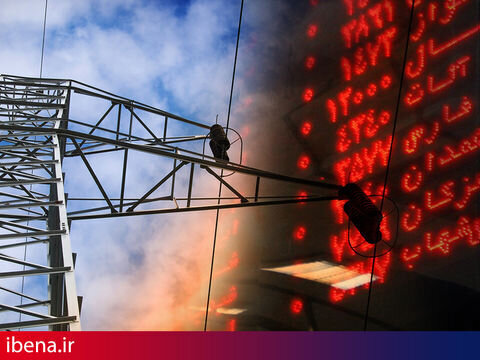Offering electricity at IRENEX beneficial for both buyers, suppliers

TEHRAN – Operating over 60 percent of Iran’s power plants, the private sector has been playing a significant role in the country’s electricity industry and the government has been taking serious measures for encouraging an even stronger presence by the mentioned sector in this industry.
Most of the electricity generated by the private companies is purchased by the Energy Ministry on a guaranteed price base, and a part of it is directly sold to industrial units or commercial sectors through the country’s energy exchange market known as IRENEX.
The offering of electricity at IRENEX has been following an upward trend so that over the past two years the offerings have more than tripled to over 500 million kilowatt-hours (kWh); Many of the country’s big industrial units have been directly purchasing their required electricity from the energy exchange with more efficient prices.
The government has also been providing incentives for private power companies to encourage them to offer their generated electricity at the energy exchange while announcing directives to high-consuming sectors to oblige them to purchase their required electricity from the energy exchange market.
Iranian Energy Minister Reza Ardakanian said on Saturday that all the industrial electricity subscribers with a consumption of more than five megawatts (MW) are obliged to supply their electricity from IRENEX as of the mentioned date.
According to Ardakanian, the offering of electricity in the energy exchange market is a great help to both producers who receive their dues sooner and the consumers that would get their electricity with better prices in this market.
Benefits of offering electricity at IRENEX
Iranian economy which was already wrestling with the negative impacts of the U.S. sanctions was faced with new challenges following the outbreak of the coronavirus in the country. The government had to implement new strategies to compensate for the decline in the oil revenues and also in the non-oil trade due to the closure of the country’s borders with the neighbors.
The capital market was one of the major strategic platforms that filled the budget gap in a variety of sectors including the electricity.
Since the energy ministry, like many other areas, was facing monetary issues due to the budget problems, it was not able to pay the dues to the private companies that had sold their electricity to the ministry, so offering the electricity at the IRENEX was a major help to the energy ministry in solving this problem.
On the other hand, offering electricity, like other commodities, would create a healthy and competitive market in which the industrial units would be able to purchase their electricity at a better price and consequently will result in more balanced prices.
Back in March, IRENEX’s Managing Director Seyed Ali Hosseini, said offering electricity at the energy exchange would centralize the country’s electricity trades and consequently balance the prices.
According to Hosseini, balancing the electricity prices at IRENEX can result in providing electricity to industrial buyers at a lower price and would also optimize electricity consumption.
“When such trades are concentrated in the energy exchange and economically motivated buyers and sellers start operating in a transparent environment, we will achieve a balanced price. This may be lower for some consumers than the current price,” the official stated.
Hosseini added that currently, there is no coherent market for trading electricity, underlining that electricity is being offered at IRENEX on a regular basis.
Last October, Hosseini announced that utility companies that offer electricity at the energy bourse will be eligible for a 10 percent tax exemption.
“This will ensure mutual benefit for both sides as power producers get a 10 percent tax break and buyers get electricity cheaper from IRENEX”, he said.
EF/MA
Leave a Comment